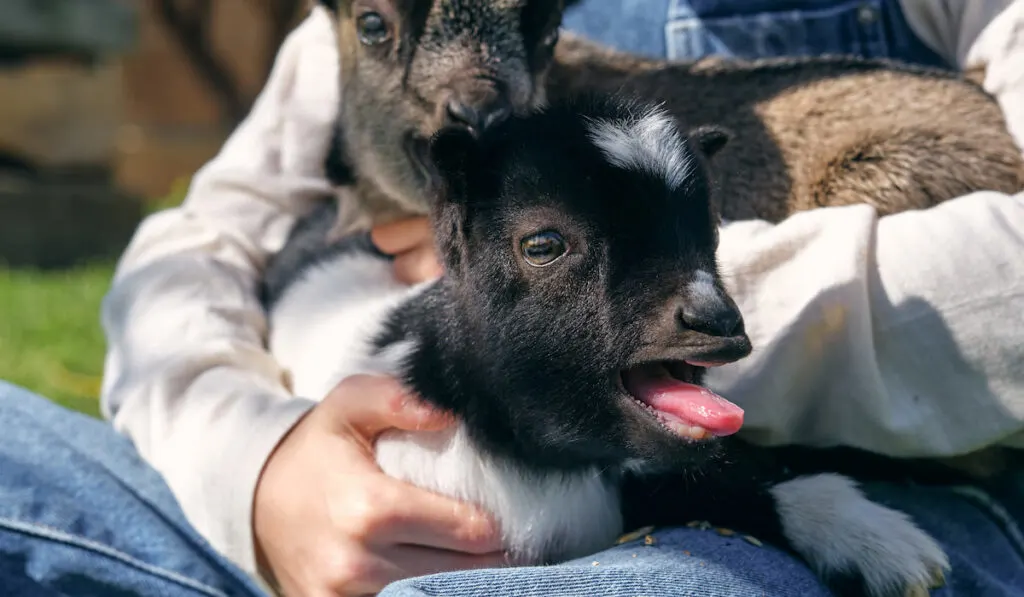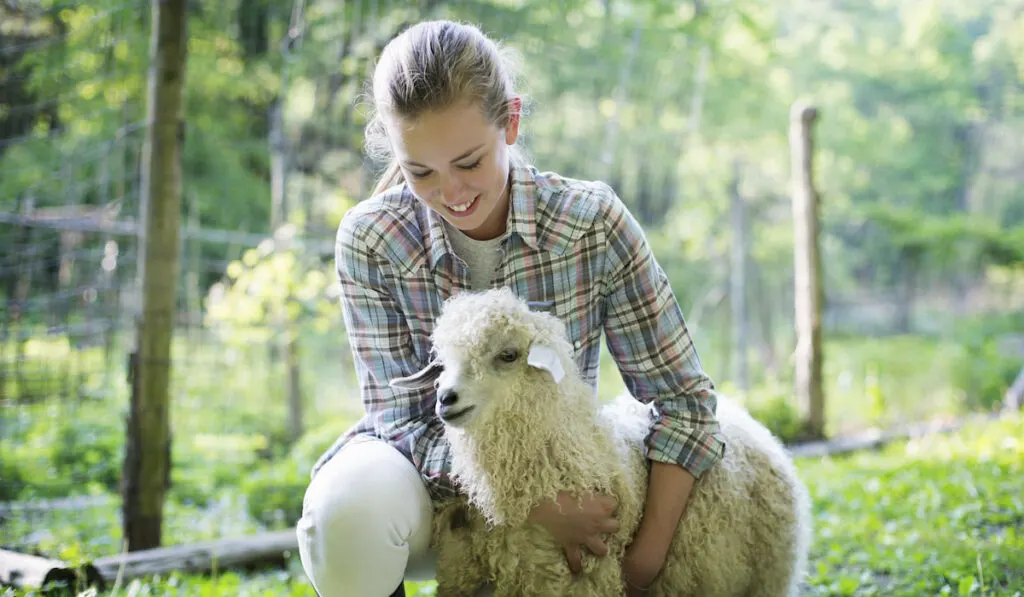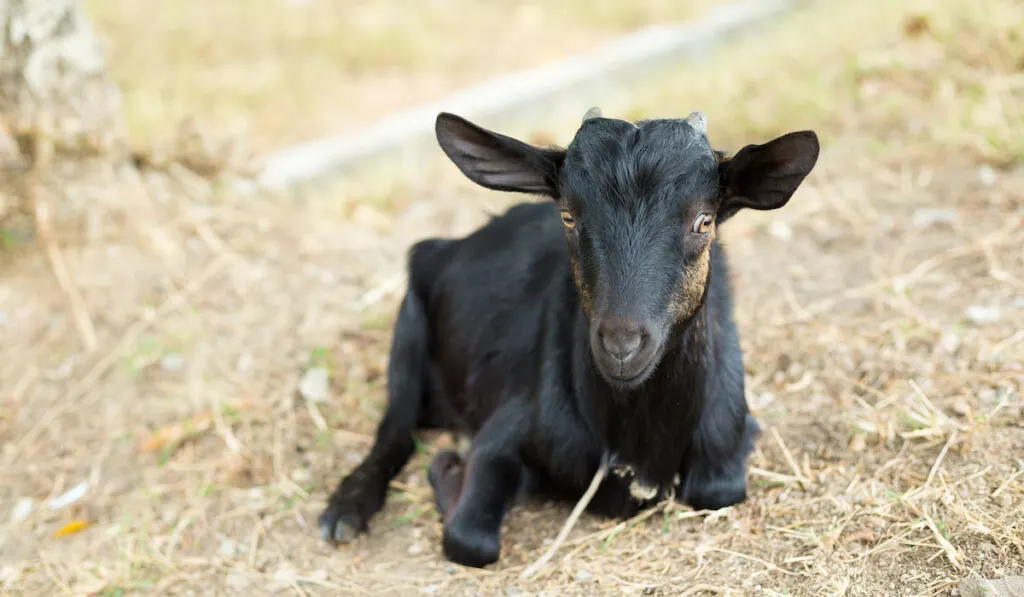To be a goat owner means that you need to know how to raise the goat and, more importantly, how to look after it when it is sick or simply not feeling well.
Before buying your goat, you should contact your Vet’s office to see if there is anything you need to learn about goats and diseases and what you can safely do from home to treat the goat before contacting a Vet.
A goat can shake or shiver if he is cold or ill. A sick goat should immediately be taken to see a Vet for treatment. Isolating the animal can prevent the illness from spreading to the other animals in your farmyard. If the animals are cold, you need to take action to give them a warm space.

A sick goat is not a happy animal and needs immediate treatment to help it recover. But what if the animal is not really sick? Are there instances when the goat will shiver and shake without actually being sick?
Let’s do the research and see what the problem could be, although it is always best to consult with a Vet immediately after the animal starts showing symptoms of any illness.
Table of Contents
What Does It Mean When My Goat Is Shivering Or Shaking?
There can be many reasons why your goat is shivering and shaking. The most straightforward explanation is that the goat is cold. But there are other explanations for why your goat could be shivering as well.
Shivering can also indicate that your goat is not well and has contracted an illness or is having a health problem.
Whatever the reason for your goat’s shivering, it normally means that you will need to intervene and make changes to the goat’s environment or take care of their health needs.
Goats Shivering From The Cold
Extreme temperature changes can cause goats to shiver in the cold. Goats do not enjoy cold, windy, or rainy weather, and if they do not find shelter away from the cold in a hurry, they can develop hypothermia, frostbite, or even pneumonia.
Often a goat who is shivering isn’t getting enough food and cannot move to shelter when the weather turns bad. He will need to be moved to a warm place and be given more food to eat.
Goats seem to be hampered by the shivering sensation and will stand on the spot and shiver rather than do something to help themselves.
As the goat owner, this means that you will need to take action and provide a warm space and food for your goats in extremely cold weather.
Even if goats have an enclosure, they may not make use of it of their own volition, and you may have to herd them into the enclosure when the temperature drops.
There are some goat breeders who live in areas that experience really extreme weather temperatures throughout the year but are adept at keeping their goats warm.
This means that keeping goats in cold weather is possible if you know how to take care of their needs.
A goat can shiver while it is acclimatizing to the cold and growing an undercoat as a protection mechanism against the drop in temperature.
There are particular goat breeds that do better in colder climates, so you should select the type of goat that would be best suited to the climate of the area where you live, especially considering your winter conditions.
Most non-cold weather goats come from arid desert-type climates and do not like the cold weather, and find it difficult to adapt to these conditions.
Young Goats Expelled From The Enclosure
Sometimes, the younger goats in the herd can be kicked out of the shelter by the older goats, causing the younger ones to get a smaller portion of the food and shiver in the cold when they do not have the protection of the herd or the enclosure.
By not getting enough food, they can lose weight and not have enough body fat to keep themselves warm.
Goats Shivering Due To Anxiety
Goats do not like change, and they can go through an adjustment period if they have been moved to a different farm or even another field.
They can shiver for a while due to their anxiety around the change of environment, but as long as their temperature is normal and they are eating and drinking, they should be fine.

What Diseases Can Cause My Goat To Shiver
There are signs that your goat is ill. If they change their behavior or start acting weird and stop eating, the chances are that there is something wrong.
A goat’s normal temperature range is between 101.5- and 103.5-degrees Fahrenheit (38.6 and 39.7 degrees Celsius). Take into consideration the weather conditions while taking your goat’s temperature – they may be hot and sweaty on a scorching hot day or chilly on a cold day and not sick.
Some diseases are specific to an individual goat, while other conditions can be transferred from animal to animal. Adults can show different symptoms to kids for the same disease.
Scrapie
This is a fatal neurological degenerative disease that can affect sheep and goats. Initially, the goat will begin to tremor and then lose control of its head and neck and finally its extremities.
Scrapie is introduced into the herd after an infected goat gives birth. The birthing fluid can expose the rest of the herd to the disease.
There is no cure for this disease. The infected goat should be put down and the barn cleaned and sterilized before allowing the rest of the herd back in.
Caprine Arthritis Encephalitis (CAE)
In adult goats, CAE appears as a form of arthritis in the joints, while in kids, it appears as paralysis in the legs. This will cause tremendous stress to the goat, causing the goat to shiver. There is no known cure, but there is supportive treatment available for the goat.
Urinary Calculi (Bladder Stones)
This disease may affect a goat’s overall appearance and movement. A goat suffering from this disease may shiver and moan, have white gums, and could spend a lot of time lying down while moaning. Powdered ammonium chloride is used to treat this disease.
Pneumonia
Progressive pneumonia is the leading killer disease of goats. Goats are at risk if you live in areas with varying temperatures as they are susceptible to the cold and wind.
Goats, especially kids, have a hard time regulating their body temperature. This disease’s symptoms are high fever and a low temperature, shivering and coughing, eye discharge, and difficulty in breathing due to fluid in the lungs.
The treatment for pneumonia includes a broad-spectrum antibiotic and clean water, and fresh food. Severely affected animals should be euthanized as this is a highly contagious disease that can spread from animal to animal.

Symptoms of a sick goat
Knowing the difference between a sick goat and a cold goat could save you time, worry, and money! Before heading off to the local Vet, check the goat’s behavior to see if you can identify what is causing the goat to shiver and shake.
Of course, if he does show obvious signs of any illness or disease, then you should get to the Vet immediately!
If any one or all of these symptoms are not normal behavior for your goat, then perform basic checks and start treatment before he infects the rest of the herd or worse:
- Standing by himself
- Facing the walls
- Not eating, drinking, or pooping
- Walking in circles
- Staring up at the ceiling
- Weakness in the hind legs
- Shivering with a temperature or only a temperature
- Shaking head
- Standing hunched
Conclusion
Getting to know your goats and their characteristics is the first step to preventing and treating illness. By learning their ways, you will see when any goat in your herd is not feeling well by the changes in their normal behavior.
Be careful when introducing new goats into your herd, and make sure that you have a clean health certificate from the breeder you bought the goat from. It would be good to quarantine the new goat for a few weeks before introducing it to the herd.
Resources
- https://www.motherearthnews.com/homesteading-and-livestock/dealing-with-cold-zbcz1401
- https://backyardgoats.iamcountryside.com/health/deep-freeze-how-to-keep-goats-warm-in-cold-weather/
- https://www.thegoatspot.net/threads/shivering-goats-what-to-do.111637/
- https://www.linkedin.com/pulse/20140908130515-78716074-how-to-recognize-a-sick-goat-signs-to-call-a-vet
- https://www.dairygoatinfo.com/threads/head-shaking.19684/
- https://goatsinthegarden.blogspot.com/2008/12/symptoms-of-sick-goat.html
- https://www.dummies.com/home-garden/hobby-farming/raising-goats/what-are-the-signs-of-a-sick-goat/
- https://www.backyardherds.com/threads/new-to-me-goat-shaking.34019/
- https://www.weedemandreap.com/goat-diseases-signs-symptoms/
